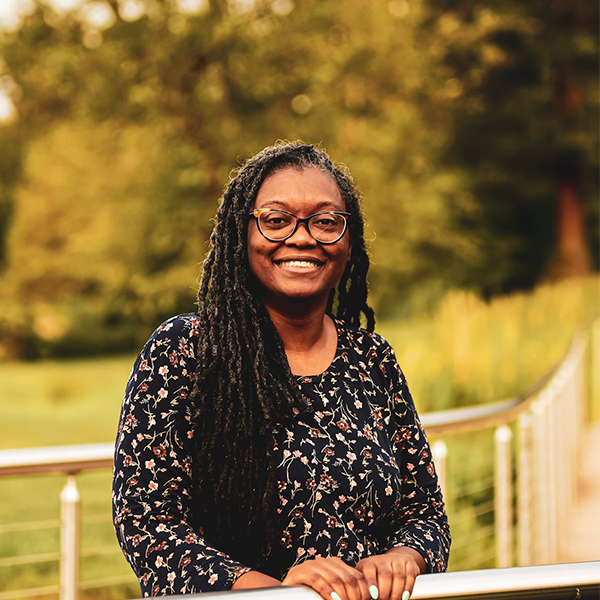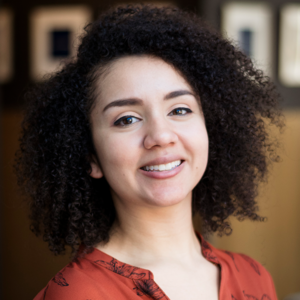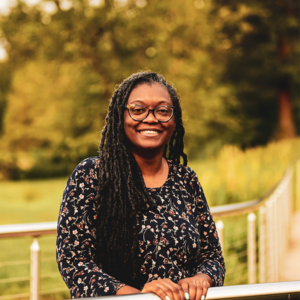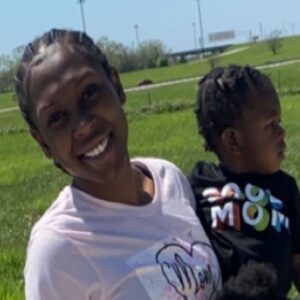Meet Chastity Mays
Chastity is a certified birth doula and the owner of Hathor Doula Services
"The mindset of medical providers is that they treat pregnancy like a sickness, and it’s not. As a doula, my role is to help give my client the confidence to know that her decisions are right, to say “You know you wanted to do this, and you can do this.” For mothers, it’s a powerful way to start your motherhood journey."
-Chastity Mays
Where do you live and work?
I’m in southern Illinois; specifically my home base is Carbondale. I’ve been a birth doula for four years, and started Hathor Doula Services to answer the maternal health crisis in my area, particularly among Black women. I cover the area an hour south to Paducah, Kentucky; an hour west to Cape Girardeau, Missouri, and an hour north to Mount Vernon, Illinois. I’ve also done birth work in Sikeston, Missouri, which is sometimes called the “bootheel” of Missouri. These areas are considered a maternity care desert – they have very limited access to care for birthing mothers. My business partner Claire Hughes and I also started a project called The Little Resource Center (TLRC) in Carbondale. We provide emergency diapers, wipes, formula, and other items to families, which I consider a continuation of my birth work.
Can you tell us a bit about your family?
I have three children: My oldest son is 24, my middle daughter is 22, and my youngest daughter is 20. I’ve been married for 24 years now to my husband Orlan.
How did you first become involved in the early childhood space?
Before I became a doula I was a home visitor with Shawnee Healthcare. We would go into homes and provide assessments, services, different things like that, for families with children up to age 5. While I was there, Shawnee lost their doula, and they asked me if I’d be interested in becoming one. I’d actually never even heard of a doula until then – but day one of training, I fell in love with it.
What are some of the biggest challenges you see in your early childhood work?
I’d say there are two big challenges: The first is getting people to understand what a doula is and does. We are educational, emotional, and physical support, but I’m not a medical provider. Some families will contact me to be their doula but think that I’m a midwife, which is a different role – I don’t catch babies. But the main reason they want me to be their doula is that they want to have a home birth because they’re terrified of going to the hospital. That leads to the second big challenge, which is the way hospitals can mistreat families. As a doula, you witness small coercions happening to these families. For example, one of my clients had been scheduled for a C-section, which she had declined because she wanted to have a natural birth (no interventions, epidurals, etc) – and the hospital staff were very upset that she had followed her own birth plan instead. The mindset of medical providers is that they treat pregnancy like a sickness, and it’s not. As a doula, my role was to help give my client the confidence to know that her decisions are right, to say “you know you wanted to do this, and you can do this.” For mothers, it’s a powerful way to start your motherhood journey.
If you could snap your fingers and instantly change something about our early childhood systems, what would it be?
I’d make it so that the Black maternal health crisis doesn’t exist anymore. Also, my dream is to have a birth center in southern Illinois, because we don’t have that option here, and women should have that option. Right now, I lean towards telling people that they can have a beautiful, amazing, healthy home birth, and that the hospital is there if we need it. The level of care and the model of care is just different; I treat my clients like my family. I’m going to support them in a comfortable space. In a hospital there are bright lights, people you don’t know and have never met before, tests that you don’t want done, and other things that won’t help a mother relax.
What keeps you passionate and motivated?
Teaching new families to advocate for themselves and their child; that education piece is very important. Families will sometimes say to me after a birth that “we couldn’t have done this without you,” – and I think they could have, but it feels good to have been there for them and be their support. Also, something I didn’t expect when I became a doula is that people will ask me to speak at conferences or events. And I will talk about the Black maternal health crisis, and tell you in the nicest way that the racist hospital system needs to go, and we need to make some big changes. People may not like me for that, but people need to hear the truth.
What gives you hope?
I’m teaching several students, and it gives me hope to see all of these new Black midwives and doulas coming up – it feels like there’s a movement of women stepping up to make the change in the birth world. Black women have seen the Black maternal health crisis and said “what are we going to do about it?” And now they have boots on the ground, doing the work. It’s so exciting.
What other interests and activities do you pursue outside of your work?
I love spending time with my kids, because they’re grown now! My youngest is in Louisville, which is only three hours away. My middle daughter is back home from Atlanta now, and my son is based in Carbondale but he travels a lot for work, so when we’re all able to get together here, we just hang out, and that’s cool. My husband also taught me to crochet; I’ve been making blankets and scarves for about 15 years.
What advice would you give to someone interested in doing the work you do?
There’s always something you can do, but in particular, educate yourselves on what a doula is and tell families to have one for their birth. It’s just so important right now, especially for Black women, and very soon doulas will even be covered by Medicaid. We also need to get back to the idea of community. We all need to support children and families; everyone should be supporting new mothers and fathers however they can.
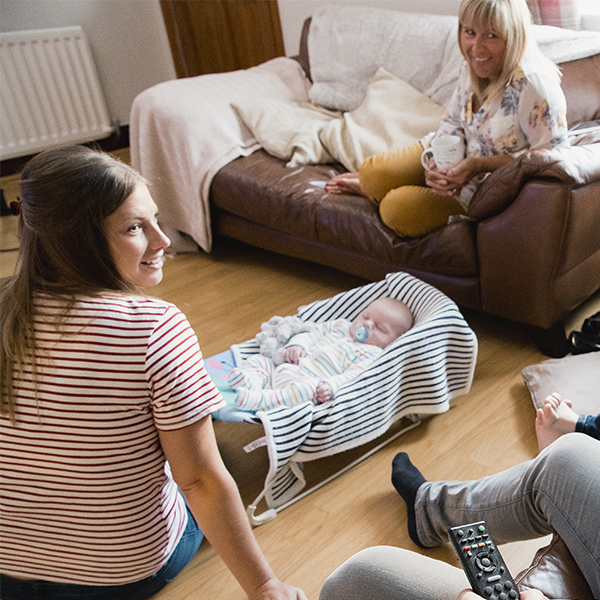
Comprehensive Perinatal Supports
As currently structured and funded in Illinois, the perinatal support system does not address the full scope of supports and needs of pregnant people and families, especially families at higher risk for poor birth outcomes.
